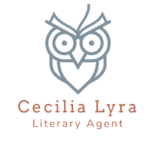Frequently Asked Questions
FAQs
A literary agent is an author’s advocate. They know the publishing landscape and make sure your work gets into the hands of the right editor. An agent’s first job is to get you published—that’s how they make money. A literary agent has the experience, skills, and motivation to negotiate the best publishing contract for an author. And once a book is published, an agent continues to offer value by managing the book’s life cycle, which may include paperback editions, foreign language editions, television or film deals, etc.
I represent adult fiction and nonfiction. You can find out more about what I’m looking for — as well as what isn’t a good fit for me — here.
I also regularly update my Twitter and Instagram pages with my wishlist.
I do not represent children’s book or YA. However, several of my talented colleagues at P.S. Literary Agency do, and I encourage you to check out their bios.
Thank you so much for your interest in querying me! Please refer to P.S. Literary Agency’s website for submission guidelines and more information on how to query me, including response time.
Please note that I do not accept queries via this website or via social media (or any other medium other than the P.S. Literary Agency’s query email). Pitches/queries (including questions about pitching/querying) sent via these channels will not receive a response.
I always appreciate content notes! I am open to reading about any subject matter except for animal cruelty. If your story includes an instance in which the dog (or another fur baby) gets hurt, please make sure to include that in the query letter.
Querying a literary agent is an act of vulnerability, and I understand that it can be frustrating to be met with silence in the case of a pass. I truly wish I could offer feedback to each and every query I receive. However, that is not possible — and not just due to my own time constraints given the high volume of queries I receive (though that is absolutely also a reason). Storytelling is subjective, i.e., passes are often a matter of taste. It is not unlike a person browsing a bookstore: they might not buy a particular book after reading its jacket copy, but that doesn’t mean another reader won’t. I wish I could say that I am able to offer feedback to querying writers, but that is not the case.
What I can say is this: by far, the most common reason why I pass on a query is that the writing, while often good, is not at the level it would need to be in order for me to position it on the competitive market. Therefore, the best strategy for writers, in my opinion, is to study the craft of writing. The second most common reason: for fiction, the story plateaus (escalating tension is a must!), and for nonfiction proposals, lack of original substantive content to back-up its central thesis.
Thank you so much for your interest in our podcast! Please refer to the podcast’s website for more information on submitting for Books with Hooks.
This is a website dedicated to my role as a literary agent, a.k.a. the best job in the world. I adore story crafting, and I’m lucky that I still get to tap into that creative part of my brain in my work with my talented clients!
If you’re interested in finding out more about the two novels that I’ve written, you can find the first here and the second here.
My website was designed and developed by my good friend, marketing maven and writer extraordinare Poorva Misra-Miller. You can find her work or book a free consultation on her agency website, Stratus Media. I recommend that all querying writers have an author’s website as it’s a great way for literary agents to find out more about you and your work.
